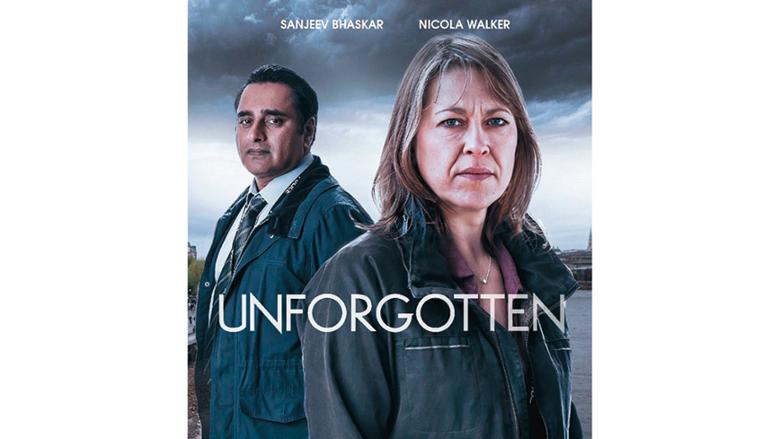Why Unforgotten’s DCI Cassie Stuart is queen of crime TV
As the hit series returns, its creator Chris Lang tells Michael Hogan how his female lead broke the mould
Who needs maverick detectives, with their vintage cars, flowing coats and unorthodox methods? The best sleuth on our screens right now is the decent, dedicated and quietly diligent DCI Cassie Stuart, who returns in ITV crime drama Unforgotten.
Brilliantly played by Nicola Walker, Cassie might not be a mercurial rule-breaker with a drink problem (like Robbie Coltrane in Cracker), a torrid love-life (like Tom Burke in Strike) or a penchant for violence (like Idris Elba in Luther) but she gets the job done. She’s methodical, by-the-book and utterly believable as she brings killers to justice. She’s precisely the sort of reassuringly British, level-headed model of professionalism we need right now. Her defiance of genre tropes is, in itself, quietly subversive.
Indeed, Cassie was created as a conscious antidote to TV’s obsession with tortured heroes on the trail of ghoulish serial killers. "I’d written a lot of police procedurals," explains Unforgotten creator Chris Lang, who started out writing for The Bill. "There was always pressure from broadcasters to find something unique and different about each copper. They wanted a quirk or eccentricity – ‘Give her a Bentley!’ – which I found slightly superficial. So I tried to strip all that away and see if I could get away with it."
Not for Cassie the signature vehicle or garments of The Bridge’s Saga Noren (Sofia Helin), with her classic Porsche and military greatcoat. Even dear old Vera Stanhope (Brenda Blethyn) has her floppy hat and Land Rover. No, the Cassie character dresses down and drives an anonymous saloon car. That’s because she was inspired not by her fictional forebears but by her real-world equivalents.

Lang’s experience of police officers, who he’d used as advisers and research tools throughout his career, was a world away from the flawed geniuses of cliched crime fiction. "They’re just ordinary people doing an extraordinary job," he says. "Detectives tend to be just like you and I. Their job is the most unusual thing about them."
Lang wrote the part with Walker in mind, having worked with her twice before. "The seeds were sown when she played a copper in [his 2012 miniseries] A Mother’s Son," he recalls. "One scene in a mortuary blew me away. A young girl had been killed and Nicola was this extraordinary blend of tender and steely."
That mix is what informs Walker’s portrayal of Cassie. As a widow and mother of two layabout student sons, she displays the patience of a saint at home – albeit one prone to the odd burst of sweary sarcasm. At work, though, she’s a woman on a mission.
There’s a scene when she bites her lip as her cantankerous father Martin (Peter Egan), who has early onset dementia, callously belittles her. Walker’s subtle reaction is a masterclass in simmering restraint. This contrasts starkly with a spiky argument with her ineffectual boss, then warm familiarity with her best friend DI Sunny Khan (Sanjeev Bhaskar). It’s a nuanced, emotionally intelligent performance.
Each six-part series begins with the discovery of a long-hidden body. The duo doggedly uncover what happened, narrowing down their investigation to a seemingly unconnected guest cast of suspects. (The first three series are available on streaming services.)
Now comes the fourth chapter, which opens with the discovery of a headless, handless, deep-frozen corpse in a London scrapyard. Cassie and Sunny set about identifying him and unravelling his tragic story.
Viewers learn that Cassie had a nervous breakdown and has been on long-term sick leave. But her plans to take medical retirement are thwarted and she’s forced to reluctantly return to work.
This storyline is rooted in reality, too. "I read a very good book about a front-line murder detective in London who had a breakdown," says Lang. "He detailed what it’s like, trawling through the very worst that humans do to each other. You’re constantly seeing all this chaos and damage. You’d be inhuman if that didn’t take a toll... It goes back to my original impulse to show coppers as real people, not caricatures, who are affected by the job they do."
Neither does Unforgotten shy away from the unglamorous reality of police work. It isn’t all hunches and high-octane chases. "We show a lot of the donkey work – knocking on doors and going through files," agrees Lang. "Watch police documentaries and you’ll see the diligent, studied quality of serious crime departments. Their offices aren’t beautifully designed temples to law enforcement, with people running around, shouting. It’s professionals, sitting quietly at their slightly ugly desks, ploughing through paperwork. There’s a lot of rummaging in brown boxes, especially with historic crime because it’s all pre-digital."

Sensitive, caring Cassie also represents a break from the past, when female TV detectives had to be go getters in a man’s world – from The Gentle Touch’s DI Maggie Forbes (the late Jill Gascoigne) to Prime Suspect’s DCI Jane Tennison (Helen Mirren). More recently, the likes of Sarah Lancashire in Happy Valley, Anna Friel in Marcella and Gillian Anderson in The Fall have been tougher and more sexually liberated than their snowflake-ish male colleagues.
"The likes of Lynda La Plante were writing at a time when there weren’t many senior female officers," says Lang. "Tennison had to be more male than the men. That was borne out by reality – I worked with Jackie Malton, upon whom Tennison was based, when she was a consultant on The Bill. She had to be tough to prevail. But that was 30 years ago. Things have moved on. There’s a woman [Dame Cressida Dick] in charge of the Met now. Women aren’t under the same pressure to prove themselves. Yet I hope Cassie adds something to the lineage of female detectives we’ve all grown up watching."